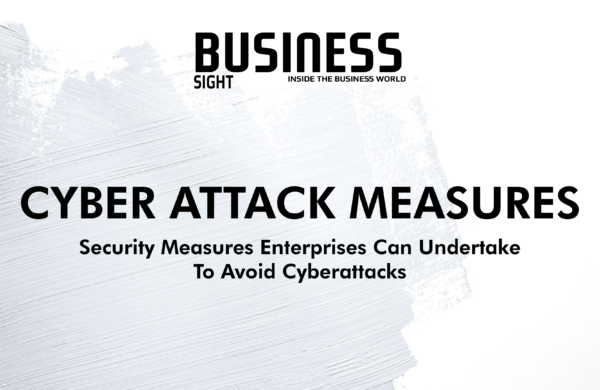The world is becoming more technologically advanced and connected, hence ironclad gates to keep the intruder out in order to keep our offices safe is no longer sufficient. Personal and corporate privacy continue to get affected as cyberattacks and data breaches become more common. It is estimated that more than 4.1 billion data records were exposed in the known data breaches. Computers and the networks in which data is hosted too need protection from the digital thieves. Because as we have evolved, with our computers and technology, the hacking community has evolved too. With AI and IoT, we stand to benefit from having an internet-connected home, vehicle or daily schedule in order to further automate and organize our lives. With a hacking attack occurring every second, it’s imperative that companies have the necessary security measures in order to survive these attacks.
Following are Security measures enterprises can undertake to avoid cyberattacks:
Monitoring and Reporting
As the attacks come and goes, this step pretty obvious. With safety measures evolving, security threats also are evolving. The worse hit can come from inside the organization meaning internal threats. Someone can plug in their USB device and the threats are free to access the system. This might be done on purpose or unconsciously as an employee might be unaware of the viruses inside their devices but surely, the action will cause a lot of trouble for the organization. Hence enterprises these days are adopting more sophisticated and enhanced monitoring and reporting tools to ensure that bad actors don’t go unnoticed.
Cloud-based Security
As the world moves a lot of technology infrastructure into the cloud, we’re seeing cloud-based security platforms and services follow. Cloud computing has evolved greatly over the last two decades and now is frequently used to support critical operations of everyday businesses. It poses to various enterprises has given rise to the need for securing this cloud transformation. From cloud-based data-storage services like Dropbox to all-in-one CRM clouds such as Salesforce, consumers and businesses have grown dependent on storing sensitive data in cloud environments. In other words, the demand for cloud-native security products has witnessed a sharp increase. A vital security layer that should be part of all cloud-native security products is the use of the ABAC (attribute-based access control) model.
Identity and Access Management
Identity and Access management make sure that only trusted employees can access the vital information of the organization. This prevents outsiders to intervene in the system as well as those employees with hidden motives for exploiting enterprises’ critical data and information.
Data Encryption
Evolved cyberattacks are getting harder to predict and that is why a growing number of data encryption advancements have increased. A particular encryption technology or strategy becomes outdated over time and becomes vulnerable to cyber-attacks. Ring signature and zero-knowledge proof and distributed ledger technologies are being used in combination with one another to achieve full or partial data anonymization, data and identity verification.

















